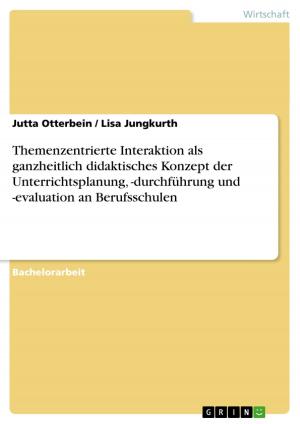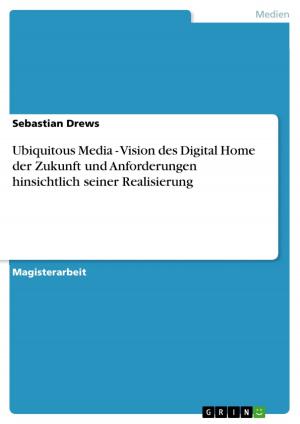Software for e-Consultation Corpus Analysis and Representation
Nonfiction, Computers, Programming, Software Development| Author: | Ricky Ohl | ISBN: | 9783656012740 |
| Publisher: | GRIN Verlag | Publication: | September 22, 2011 |
| Imprint: | GRIN Verlag | Language: | English |
| Author: | Ricky Ohl |
| ISBN: | 9783656012740 |
| Publisher: | GRIN Verlag |
| Publication: | September 22, 2011 |
| Imprint: | GRIN Verlag |
| Language: | English |
Seminar paper from the year 2011 in the subject Computer Science - Software, grade: Defended, Griffith University (Griffith University and Qantm College), language: English, abstract: The global phenomenon of electronic(e)-governance and the advanced capacity for information generation by information and communication technologies (ICTs) have contributed to the perceived problem of information overload. In participatory democracy and specifically e-democracy and e-consultation, in which a vast quantity and array of textual discourse can be generated, effective and efficient information processing is important. Effective and efficient processing will assist participants to make-sense of and remain engaged in consultations. Accordingly, tools and technologies to assist in the analysis, synthesis and dissemination of such discourse have the potential to make a salient contribution. In this article, a critique of several software packages, consisting of qualitative text analysis, natural language text mining and computer supported argument visualisation software is presented. The use of natural language text mining software with sentiment analysis features was the initial focus of this investigation. However, early in the investigation and after a software trial, natural language text mining software was considered underdeveloped with regard to the specific functionality sought. Hence, the investigation then focused primarily on the utility of computer supported argument visualisation (CSAV) and also text analysis software. For text analysis, Leximancer, Text Analyst Atlas.ti. and TextSTAT were preferred and chosen from among eleven programmes investigated. For CSAV software, a programme called Compendium was preferred and chosen from among twelve programmes investigated.
Seminar paper from the year 2011 in the subject Computer Science - Software, grade: Defended, Griffith University (Griffith University and Qantm College), language: English, abstract: The global phenomenon of electronic(e)-governance and the advanced capacity for information generation by information and communication technologies (ICTs) have contributed to the perceived problem of information overload. In participatory democracy and specifically e-democracy and e-consultation, in which a vast quantity and array of textual discourse can be generated, effective and efficient information processing is important. Effective and efficient processing will assist participants to make-sense of and remain engaged in consultations. Accordingly, tools and technologies to assist in the analysis, synthesis and dissemination of such discourse have the potential to make a salient contribution. In this article, a critique of several software packages, consisting of qualitative text analysis, natural language text mining and computer supported argument visualisation software is presented. The use of natural language text mining software with sentiment analysis features was the initial focus of this investigation. However, early in the investigation and after a software trial, natural language text mining software was considered underdeveloped with regard to the specific functionality sought. Hence, the investigation then focused primarily on the utility of computer supported argument visualisation (CSAV) and also text analysis software. For text analysis, Leximancer, Text Analyst Atlas.ti. and TextSTAT were preferred and chosen from among eleven programmes investigated. For CSAV software, a programme called Compendium was preferred and chosen from among twelve programmes investigated.















